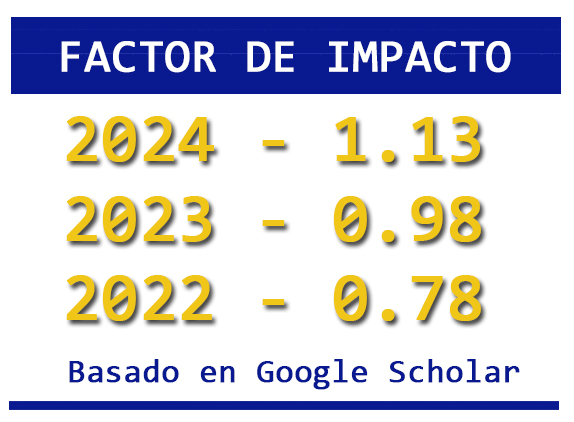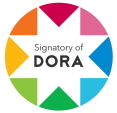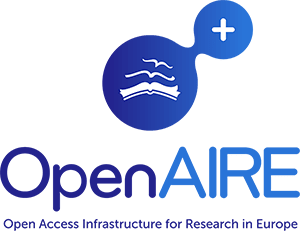Environmental Awareness in Students at the University of Sonora
DOI:
https://doi.org/10.36790/epistemus.v15i31.179Keywords:
Environmental attitudes, environmental awareness, sustainability, University of Sonora, SDGAbstract
The objective of this research is to know the behavior, attitudes, and environmental values of a group of 68 students from the Departments of Biology, Chemical-Biological Sciences and Engineering of the University of Sonora. This is a mixed cross-sectional study where an instrument of 18 items was applied to 18 Engineering students, 23 Biology students and 27 Chemical- Biological Sciences students. A comparative descriptive and correlational analysis of the data obtained was carried out.
The results indicate that the students are open and willing to protect the environment and contribute to solve environmental problems. This study allowed generating opportunities that will favor comprehensive collaboration between students, professors and university authorities, which have an impact on the protection of the environment and strengthen environmental awareness to contribute to the goal 4, of SDG, Quality Education, an example of these actions is design a MOOC-type course that integrates professional skills related to...
Downloads
References
A. Corte-López, J. Alvarado-Ibarra y K. Pérez-Gámez, 2019. “Conciencia ambiental en estudiantes universitarios: caso UNISON”. Visión académica 2030: estrategias de universidades mexicanas. ISBN: 978-607-97911-1-0 p. 1094.
A. Gomera, 2008. “La conciencia ambiental como herramienta para la educación ambiental: conclusiones y reflexiones de un estudio en el ámbito universitario”., Córdoba, España: Universidad de Córdoba. Disponible en: https://docplayer.es/8801082-La-conciencia-ambiental-como-herramienta-para-la-educacion-ambiental-conclusiones-y-reflexiones-de-un-estudio-en-el-ambito-universitario.html.
A. Gomera-Martínez, F. Villamados-de la Torre, y M. Vaquero-Abellán, 2012. “Medición y categorización de la conciencia ambiental del alumnado universitario: contribución de la Universidad a su fortalecimiento” de curriculum y formación del profesorado”, Revista Ambientalización curricular y sostenibilidad. Nuevos retos de profesionalización docente. 16 (2), p. 1-21.
A. Matas-Terrán, H.Tójar, A. Benitez y L. Almeida, 2004. “Diagnóstico de las actitudes hacia el medio ambiente en alumnos de secundaria: una aplicación de la tri”. Revista de Investigación Educativa. 22 (1) p. 233-244.
Cronbach LJ, Meehl PE. 1955. Construct validity in psychological tests. Psychol Bull. 52 p. 281-302. DOI: https://doi.org/10.1037/h0040957
D. Gil-Pérez, 2003. “A Proposal to Enrich Teacher´s Perception of the State of the World: First Results”. Environmental Education, 9 (1), p. 67-90. DOI: https://doi.org/10.1080/13504620303465
E. Pasek, 2004. Hacia una conciencia ambiental. Educare, 8 (24), p. 34-40.
Febles, M. (2004) Sobre la necesidad de la formación de una conciencia ambiental. Cuba: Universidad de La Habana, Facultad de Psicología.
Grana, R. (1997). A mbiente, Ciencia y Valores. Fundamentos científicos y axiológicos de la ecología. Buenos Aires, Argentina: Espacio Editorial.
Hernández-Quiroz, E., Zizumbo-Villarreal, L., & Pérez-Ramírez, C. (2016). La construcción del conocimiento ambiental en México. Revista Ateliê Geográfico, 10(1), 52–72. https://doi.org/10.5216/ag.v10i1.37040 DOI: https://doi.org/10.5216/ag.v10i1.37040
J. A. García y D. A. García, «Conciencia ambiental en estudiantes universitarios: eLearning y eMarketing para la sostenibilidad,» RISTI, vol. 09, nº E35, pp. 16-27, 2020.
J. E. Moreno, L. M. Rodriguez y J. V. Favara, 2019. «Conciencia ambiental en estudiantes universitarios. Un estudio de la jerarquización de los Objetivos de Desarrollo Sustentable (ODS),» Revista de Psicología, 15 (29), p. 113-119.
M. Acebal-Expósito, 2010. “Conciencia Ambiental y Formación de maestras y maestros.” Tesis doctoral ed. Málaga, España: Servicios de Publicaciones de la Universidad de Málaga. DOI: https://doi.org/10.5565/rev/ec/v29n1.550
La Carta de Belgrado. 1975. Seminario Internacional de Educación Ambiental. Disponible en: https://www.gob.mx/cms/uploads/attachment/file/614382/11-Carta-de_Belgrado.pdf
Objetivos de Desarrollo Sostenible. 2015. Organización de las Naciones Unidas (ONU). Disponible en: https://www1.undp.org/content/undp/es/home/sustainable-developmentgoals.html
OVIEDO, H. C. y CAMPO-ARIAS, A 2005. Aproximación al uso del coeficiente alfa de Cronbach. rev.colomb.psiquiatr. 34 (4), p.572-580. ISSN 0034-7450
Plan de Desarrollo Institucional, Universidad de Sonora. Disponible en https://www.unison.mx/institucional/pdi2017-2021.pdf, Consultado el 22 de marzo de 2021.
Krus DJ, Helmstadter GC. 1993. The problem of negative reliabilities. Educ Psychol Meas. 53 p.643-50. DOI: https://doi.org/10.1177/0013164493053003005
Streiner DL. 2003. Starting at the beginning: an introduction to coefficient alpha and internal consistency. J Pers Assess. 80 p. 99-103. DOI: https://doi.org/10.1207/S15327752JPA8001_18
UNESCO, 1975. UNESCO.ORG. [En línea]
Disponible en: https://unesdoc.unesco.org/ark:/48223/pf0000017772_spa
[Último acceso: 4 abril 2021].
UNESCO, 1987. “Elementos para una estrategia internacional de acción en materia de educación y formaciones ambientales para el decenio 1990, Moscú: UNESCO-PNUMA”.
UNICEF. 2021. Sólo el 4 por ciento de los y las jóvenes activistas en América Latina y el Caribe considera que “la acción climática es suficiente” Nota de prensa. Disponible en: https://www.unicef.org/lac/comunicados-prensa/la-accion-climatica-suficiente-dijo-solo-el-4-por-ciento-de-la-juventud
Downloads
Published
How to Cite
Issue
Section
License
Copyright (c) 2022 EPISTEMUS

This work is licensed under a Creative Commons Attribution-NonCommercial-NoDerivatives 4.0 International License.
The magazine acquires the patrimonial rights of the articles only for diffusion without any purpose of profit, without diminishing the own rights of authorship.
The authors are the legitimate owners of the intellectual property rights of their respective articles, and in such quality, by sending their texts they express their desire to collaborate with the Epistemus Magazine, published biannually by the University of Sonora.
Therefore, freely, voluntarily and free of charge, once accepted the article for publication, they give their rights to the University of Sonora for the University of Sonora to edit, publish, distribute and make available through intranets, Internet or CD said work, without any limitation of form or time, as long as it is non-profit and with the express obligation to respect and mention the credit that corresponds to the authors in any use that is made of it.
It is understood that this authorization is not an assignment or transmission of any of your economic rights in favor of the said institution. The University of Sonora guarantees the right to reproduce the contribution by any means in which you are the author, subject to the credit being granted corresponding to the original publication of the contribution in Epistemus.
Unless otherwise indicated, all the contents of the electronic edition are distributed under a license for use and Creative Commons — Attribution-NonCommercial-ShareAlike 4.0 International — (CC BY-NC-SA 4.0) You can consult here the informative version and the legal text of the license. This circumstance must be expressly stated in this way when necessary.
The names and email addresses entered in this journal will be used exclusively for the purposes established in it and will not be provided to third parties or for their use for other purposes.
























